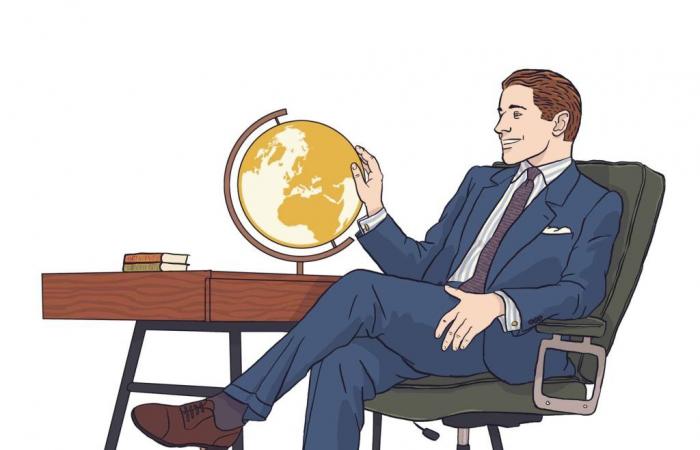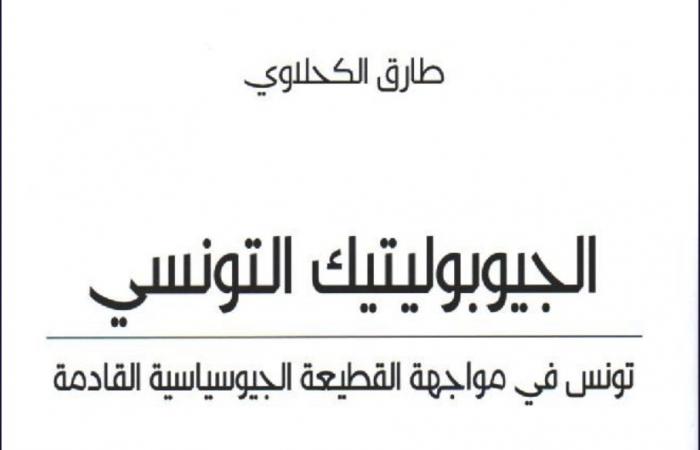Two works published in Arabic in Tunisia to understand the geopolitical reflection of the land of jasmine.
Conflicts read for you. In Arabic language
Léon Pervinquière, the Vendée man in love with the Sahara
Léon Pervinquière, Forbidden Tripolitania, Ghadamèstranslated into Arabic: The secrets of the Tunisian-Libyan border in 1911studies and translation by Al Dawoui Moussa, Tunis 2012.
A great pioneer of the gigantic expanses of our overseas territories, fallen into oblivion, the figure of the geologist Léon Pervinquière is well known to Tunisian geographers. This work, decorated with rich period iconography, is available in Arabic translation, the original edition dating from 1911 having been out of print for ages. The study reports on the topography and geology of southern and central Tunisia and solidly details the particularities of this Saharan territory on the borders of Tunisia.
Born in La Roche-sur-Yon in 1873, died in 1913, Léon Pervinquière is a forgotten figure of the French school of geography. This Vendée son of a civil servant studied geology at the Sorbonne before leaving for central Tunisia where he wrote a study praised for its precision. The 8the International Geological Congress held in conjunction with the Universal Exhibition of 1900, offered L. Pervinquièrre the opportunity to present his first 1/200,000 geological map of Tunisia. Three years later, on April 30, 1903, he defended his thesis on central Tunisia, the fruit of 6 years of work (1897-1903) and three missions of 6 to 8 months each. One of his contributions is the study of the Kef section in north-west Tunisia, a type locality of the Cretaceous-Tertiary boundary, now internationally renowned.
In 1911, an epic mission in Tripolitania took him to Ghadamès, on the fringes of the delicate demarcation of the borders with the new Italian colonial power; he will make a book out of it Forbidden Tripolitania, Ghadamespublished in 1912. He died in 1913 at the age of 39 before having obtained this position as lecturer and after the University of Liège had offered him a professorship, he who cherished the dream of a career at the Sorbonne.
After his death, the locality of Mechiguig became Fort Pervinquière until the independence of Tunisia in 1956. Despite his young age, he left behind the memory of a great popularizer, author of more than 200 scientific chronicles published in publications. specialized journals. His memory is today saluted by his Tunisian translator who, not content with paying tribute to his intimate knowledge of each plot of stone and sand in the great south of their country, finds in his work the answer to questions relating to the boundaries of their border with Libya.
Geopolitics of Tunisia
Tarek Al Kahlaoui, Geopolitics of Tunisia(in Arabic) Sotumédias editions, 418 pages, 2024.
Weak link in the Maghreb in terms of its surface area, its demographics and its economy, Tunisia nonetheless remains an important country.
Seen from Europe, the spotlight is increasingly focused on Tunisia. The President of the Italian Council, Giorgia Meloni, visited Tunis several times, before returning there accompanied by her Dutch counterpart, Mark Rutte and the President of the European Commission, Ursula Von der Leyen. In mid-June, the Tunisian Prime Minister represented his country at the G7 summit in Italy. A laboratory of democracy and the struggle for the emancipation of Arab women, this country is today seeking an identity reconciled with its past and faces challenges that go far beyond the narrow framework of its territory.
Eminent specialist in international relations in his country, Tarek Al Kahlaoui, publishes a voluminous study which reads above all like a geopolitics manual and a study of international relations from a Tunisian point of view.
Abundantly documented, the work sets out the major theories of German, Anglo-Saxon, Soviet and Indian geopolitics, and reviews the main global issues, starting with the Sino-American rivalry, then offers case studies linking geography to politics (American, Chinese, Indian, Iranian, Egyptian cases) as well as disruptive theory in geopolitics.
More interesting is the third part dedicated to the representation of Tunisia in its geopolitical environment. By analyzing the history of the formation of the Tunisian territory since the end of the 19the century, the author highlights Tunisian geopolitical thinking in the light of the challenges facing his country since the French protectorate (1881), through the erection of an independent state in 1956. The opportunity for author of presenting some lines of cleavages between the Tunisian political elites on the subject of the concept of the border, Arabness and Islamity.
We will read with interest the chapters devoted to the geophysical and geoeconomic characteristics of the Tunisian territory and those devoted to the prospects of this country with regard to transstate communications infrastructures, hydrocarbons (gas and oil) likely to contribute to the development of this major producer. of phosphate which has been in inexorable decline for several decades.
The author grew up in a southern suburban town of Tunis in Radès, he served as director general of the Tunisian Institute of Strategic Studies affiliated to the Presidency of the Republic in Tunisia from May 2012 to December 2014, which institute provides reports to decision-makers in the geopolitical, security, economic and social fields. Holder of a doctorate on the Muslim vision of the Mediterranean awarded by the University of Pennsylvania, Tarek Al-Kahlawi also participated in the political life of his country during the post-Ben Ali transition, becoming a member of the political bureau of Congress for the Republic. He notably held the position of assistant professor at Rutgers University (Departments of History and Art History) in New Jersey and regularly comments on Arab issues and situations in Arabic and English on numerous Tunisian media. and pan-Arab.
Tigrane Yegavian







